Advocacy and collaboration yield results in push for sustainable value chains
Whilst civic space across the world has been under increasing pressure in 2022, leading to still greater inequalities, people continue to stand up for their rights, even in the most difficult circumstances. The people at the beginning of global value chains are taking on a lion’s share of the work but millions of them are unrewarded for it. Amidst the ongoing struggle against unjust systemic barriers that prevent better livelihoods for all, there remains much courage and hope. Together with our RECLAIM Sustainability! consortium partners, we support the breaking down of systemic barriers and strengthening of enabling environments where all can participate and benefit equally, and all voices are heard.
Genuine sustainability and inclusivity in global value chains requires equal participation and representation for the millions of people at the beginning of these value chains, including smallholder farmers, miners and workers. Their voices must be heard and their interests must inform decision and policy making. The RECLAIM Sustainability! programme works toward this goal, ensuring improved livelihoods and fostering gender and social inclusion across all programming.
Strengthening transparency and the position of women in coffee
Solidaridad Central America achieved an important milestone for women in the Honduran coffee sector with the ratification of the country’s first Coffee Gender Policy while at the Specialty Coffee Expo 2022. The Expo is one of the most important coffee trade shows in the world and provided great visibility to this important achievement. Moreover, Solidaridad was invited to present the “Coffee Gender Policy” to the Director of the International Coffee Organization at the IV Summit for the Sustainability of Coffee Farming. The policy was the result of a focus on inclusive dialogue to strengthen the position of women in Honduras.
In continuing efforts to strengthen the position of women in Honduras, Solidaridad led an experience exchange in Colombia where women learned about technological developments, associative models, and transformative innovation in coffee. Making sustainable and inclusive coffee the norm is one of our top objectives in the region. Traceable supply chains help achieve that aim and women were a key component in achieving that in Honduras. In August 2022, coffee producers in Honduras shipped their first container of 100% traceable coffee in cooperation with Cooperativa Cafetalera Capucas and our programme partner Fairfood. Traceability allows consumers to know who produced the coffee and what producers earned from it. In 2023, we will continue our work in the coffee sector, including implementation of the lobby and advocacy agreement with our partner CONACAFE to modify the national coffee policy on issues around Fair Value Distribution, and strategies for access to finance that includes smallholders, mechanisms for risk management, promotion and markets.
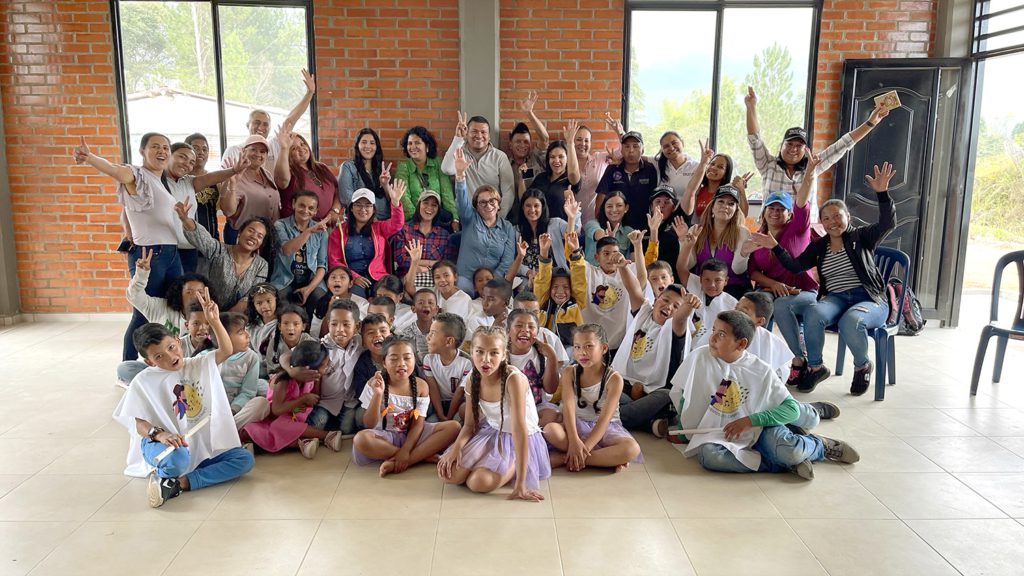
Fairfood played an integral role in achieving transparency and traceability through smart innovations. Transparency is the ultimate tool in corporate accountability – in other words, don’t just tell us about impact, show us the proof. Traceability is a prerequisite for transparency. When we map out all actors involved in a specific value chain, we gain a profound understanding of the extent of any unfair distribution of value between them.
In 2022, we began working with new private sector partners who are willing to embark on this transparency journey. Among them are Fairtrade Original, Matthew Algie, Tradin Organic, Theobroma, and Molinos de Honduras. Together, we realized four fully traceable containers of cocoa and coffee (25,000 kg and 1,018,951 kg respectively) from 5,474 farmers based in Honduras, Sierra Leone and Uganda.
Fairfood also continues to advocate for greater transparency in the Netherlands. Our Living Wage & Income Lab hosted four sessions in 2022 that are building a strong network of advocates among companies, civil society organizations, government agencies, and other stakeholders from across various sectors. We were joined by speakers from Tony’s Chocolonely, Fairtrade Original, Oxfam, Fairphone, B Lab, and other inspiring organizations.
“For us, traceability and transparency means more trust, and it means more solid relationships. It helps us attract more customers, and keep the ones we already have. We like technologies that can make the lives of our partners and customers easier. Behind it all is the farmer. It gives them information about the market. The farmer needs these kinds of tools to continue producing coffee. Yes, we are giving the market what it wants, but in the end, all the effort is based on the farmers’ needs. We share this value with Fairfood,” Jose Omar Rodriguez Romero, Cooperativa Cafetalera Capucas.
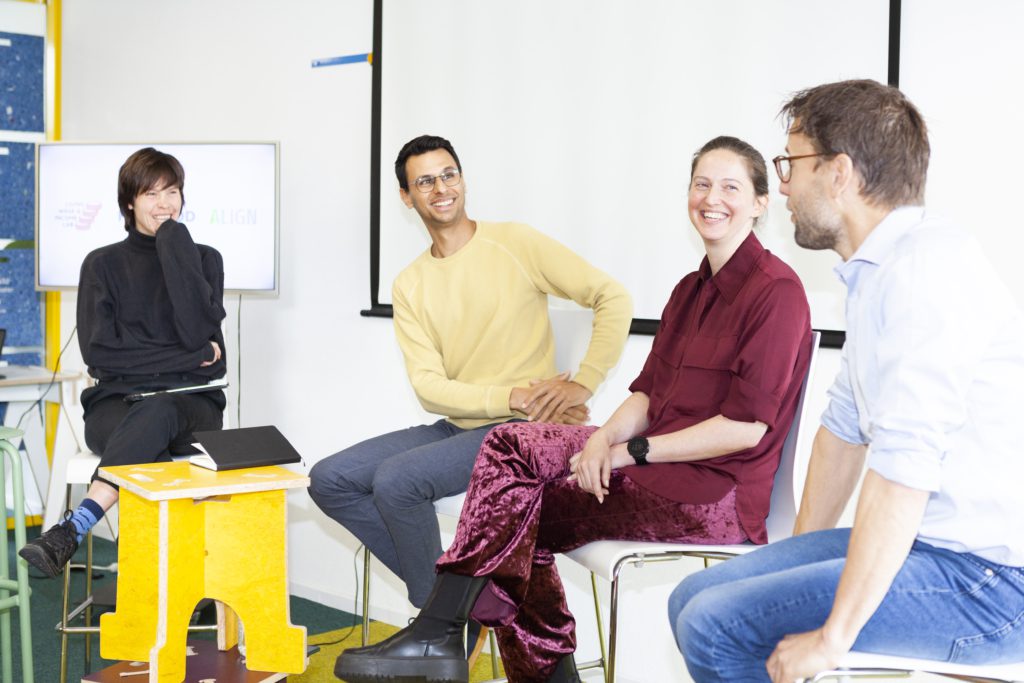
Ensuring an improved position for smallholders
Solidaridad Asia brought stakeholders across tea, palm oil and cotton supply chains together to collaborate on sustainability solutions and standards, including a focus on regenerative agriculture, that work for all, especially smallholders. In September, we launched the Asian Palm Oil Alliance, a regional multi-stakeholder platform that unites palm oil industry associations from major palm oil-importing countries India, Pakistan, Sri Lanka, Bangladesh and Nepal. The Alliance is committed to promoting sustainable production and consumption of palm oil.
We also brought the tea associations of India, China, Indonesia, Bangladesh, Nepal and Sri Lanka together for the second Asia Tea Alliance Summit in Kolkata. The members committed to promoting national sustainability standards and the UN SDGs, protecting the interests of tea producers and tackling climate change. At the other end of the supply chain, Solidaridad ran a targeted three-month awareness campaign on sustainability in tea from farm to cup, across print, online and social media, which reached more than 20 million consumers.
Moreover, the Alliance of Cotton and Textile Stakeholders on Regenerative Agriculture (ACRE), the world’s first regenerative cotton platform, was launched in India. Developed by Solidaridad, Centre for Responsible Business and regenagri, the Alliance aims to promote regenerative agricultural practices, with the vision of making India the world’s largest producer of certified regenerative cotton.
In 2023, we will continue to engage stakeholders through these platforms, assess the agreements, arrive at conclusions, share the learnings, and chart the next course of action.
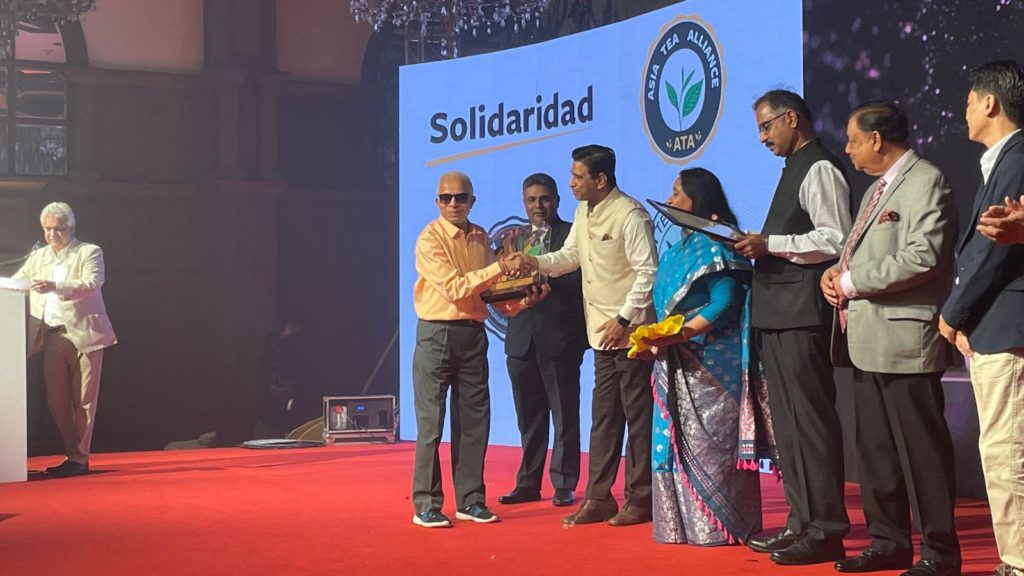
high-quality, sustainably grown specialty tea
In the meantime, Business Watch Indonesia worked with a variety of stakeholders to improve the bargaining position of tea smallholders in Indonesia. One such event, the Smallholders Tea Week, promoted smallholder tea products to hotels, restaurants and cafes. This event involved a talk show, tea blending competition, smallholders tea exhibition, and a business meeting, hosted by Business Watch Indonesia in collaboration with Indonesia Tea Marketing Association, Paguyuban Tani Lestari, Tealogy Cafe and Yayasan Komoditi Lestari.
In the effort to support the marketing of smallholder products, Business Watch Indonesia published a short movie depicting the contribution of women micro-entrepreneurs to the sustainability of smallholders’ tea plantations. As micro-entrepreneurs, women not only support the sale of smallholders’ tea, but also ensure a more empowered position for themselves.
In the textile sector, Business Watch Indonesia developed KUBU (formerly Nakerlink), a digital application that helps workers find job opportunities, share information, improve knowledge, and broaden their network. KUBU has the potential to support workers as they build a better life and strengthen their bargaining position and the voice of workers and labor unions.
Solidaridad Asia and Solidaridad Europe have shown support for the further development of KUBU, which will be rolled out more widely from 2023 onwards.
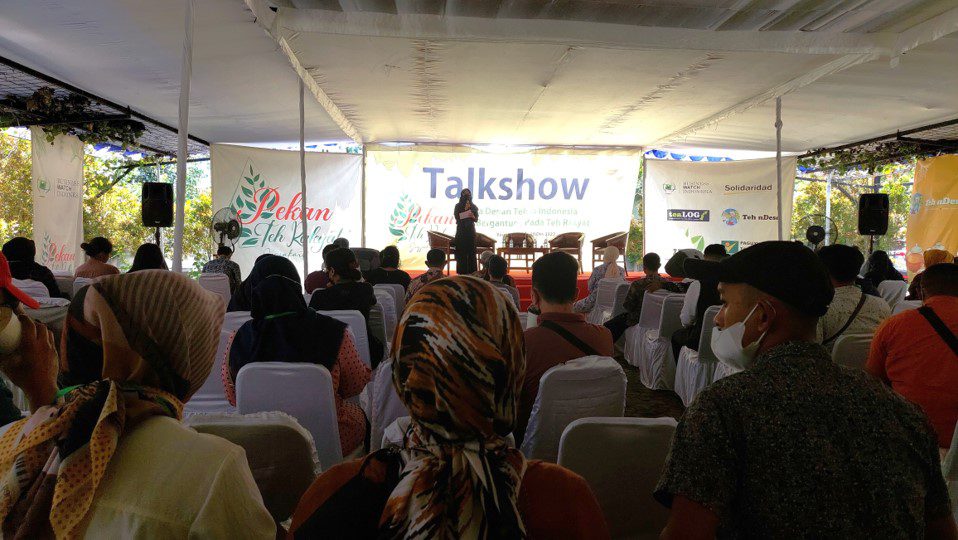
catering industry
Solidaridad Southern Africa hosted a regional multi stakeholder workshop in Blantyre Malawi, with 94 participants from seven tea-producing countries. The theme was “Fostering Genuine and Inclusive Sustainability in the Tea Value Chain”. Malawi’s Ministry of Trade & Industry gave the keynote address.
The goal of this regional workshop was to jointly address the challenges in the tea sector that negatively impact the production and profitability of tea, including recurring climatic shocks and the rising costs of fuel and fertilizers. The workshop provided a platform for stakeholders to consider alternatives for transforming the tea sector.
A variety of tea sector actors, including producers, workers, packers, and brokers attended the workshop and stressed the need for stronger regional markets and collective action that could provide economies of scale. In addition, the participants broadened our understanding of inclusivity and sustainability and recognized that a holistic view of political, economic, social, technological, environmental and legal considerations need to be factored in in order to achieve an inclusive sector.
In 2023, Solidaridad Southern Africa will continue our work with producers, packers and brokers in the tea sector to strengthen the position of smallholders.
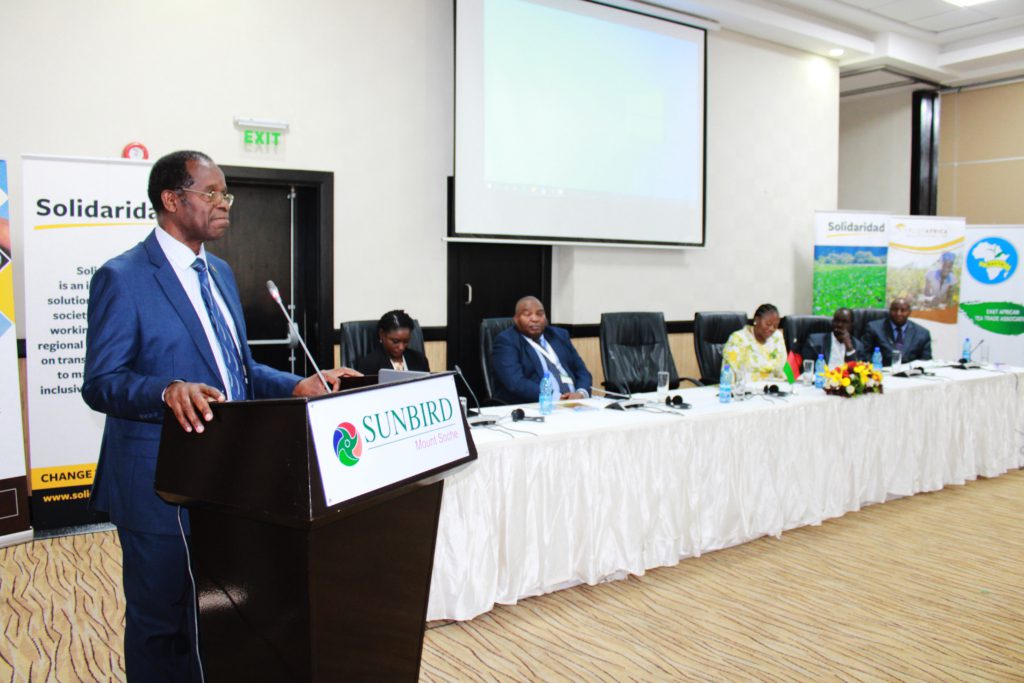
Strengthening capacity through dialogue and advocacy
Lobbying and advocacy efforts are an important vehicle for strengthening the positions of smallholder farmers, miners and workers, as well as civil society. In 2022, the RECLAIM Sustainability! consortium partners continued our work to build inclusive dialogue on important issues that raise awareness and provide relevant training to our partners. This work will continue into 2023.
In line with this, Solidaridad South America facilitated the participation of several groups of Artisanal and Small-scale (ASM) miners in dialogues and workshops towards elaboration of Peru’s first National Policy regarding development of the ASM sector.
Solidaridad facilitated over 120 dialogue sessions among public sector officials, ASM miners and civil society organizations across the country. This new Policy was issued on 5 December 2022. In addition, Solidaridad supported the public presentation of this policy at PERUMIN, the largest mining event in Latin America, providing visibility to the ASM sector for the first time in the 35-year history of this important event.
In 2023, our efforts to integrate the ASM sector in the formal economy will focus on the financial inclusion of ASM in Peru. We have partnered with Los Andes, one of the main rural banks in Peru, and Minera Orex, a mid-size mining company, to implement the first formal financial product to ASM miners. Our goal is to allocate USD 400,000 to 25 ASM miners, who supply gold ore to Minera Orex, to be used for purchasing productive equipment. This will be one of Latin America’s first regional experiences of financial inclusion in the ASM sector.
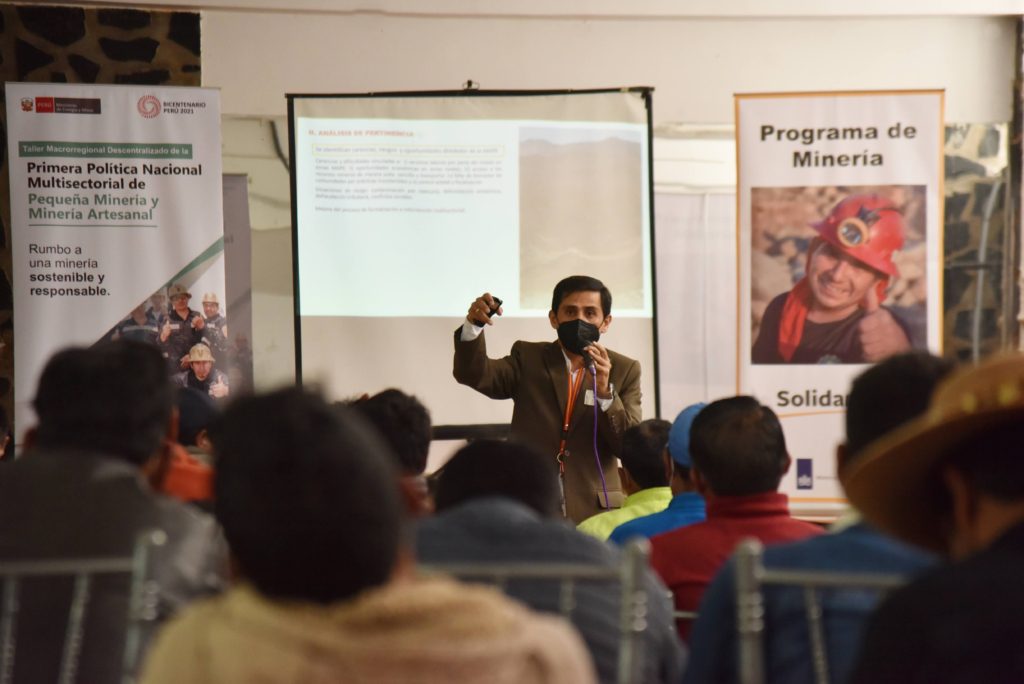
Solidaridad East and Central Africa facilitated training on lobbying and advocacy for select civil society organizations (CSOs) to ensure inclusive decision-making in the target value chains. To ensure that producers’ voices are heard, we also facilitated the participation of producer representatives in local, regional and national multi-stakeholder dialogues. Such events included the World Bank Conference on Extractives and GEMS Africa, 4th Uganda Artisanal Small-scale Mining and Quarrying conference, the 62nd annual meeting of the Inter-African Coffee Organization, and the 3rd Pakistan Tea Convention.
We also provided training on responsible reporting to media organizations and launched campaigns to raise awareness on the challenges smallholders face, and called for decisive action that ensures enabling policies, fair prices and wages, gender and social inclusivity, natural resource management and decent work. The campaigns resulted in media appearances, news and feature stories that amplified the voices of smallholder producers.
In 2023, we will continue supporting smallholder producers, especially women and youth, to improve their position and bargaining power in value chains. Additionally, we will facilitate the creation of a digital market information tool that will improve timely dissemination and access to Mombasa Tea Auction prices to support tea farmers and workers as they negotiate for fair prices and wages.
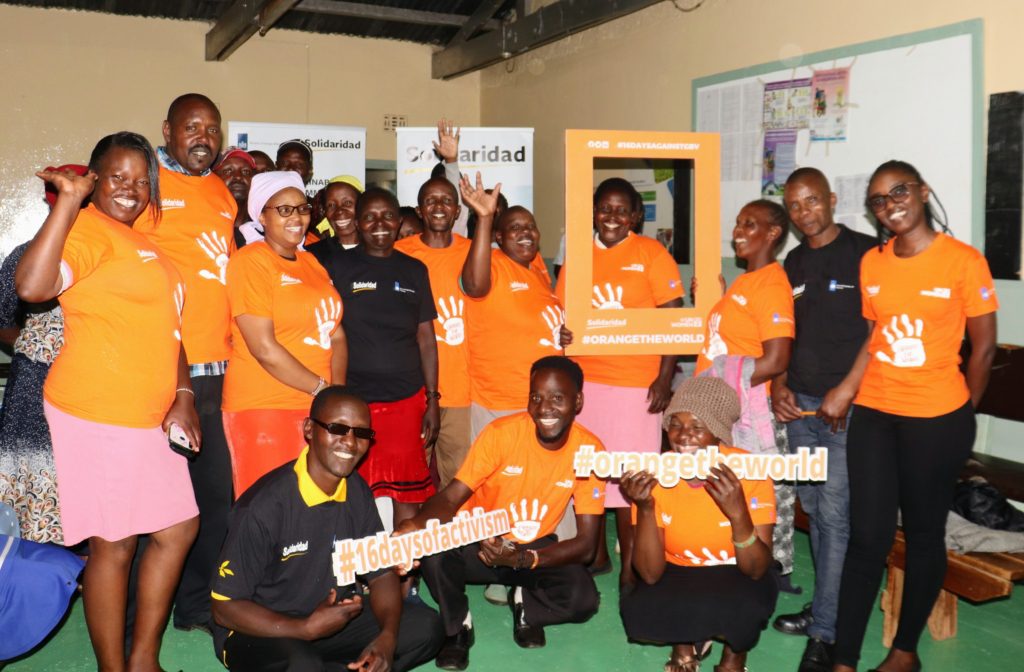
The Forum was held during the 16 Days of Activism Against Gender-Based Violence
Solidaridad West Africa convened stakeholder dialogues and supported an array of advocacy activities. In Ghana, we convened a national policy dialogue on oil palm price mechanisms with value chain actors. This was the first time industry players, including oil palm producers, processors, civil society, and government agencies, came together to build consensus on a minimum and maximum price for fresh fruit bunches. In reaction to this effort the price mechanism document was accepted and adopted by the government and a price was set for the 2023 fiscal year.
We also initiated inclusive stakeholder dialogues on land rights and provided technical assistance to the Lands Commission of Sierra Leone. Following extensive consultation, two bills were passed into a National Land Commission Act 2022.
In Ghana, we contributed to planning the inaugural national land conference and presented the outcome of our work on scalable innovations in cocoa land governance for improved tenure security for the stakeholders. Key recommendations – gathered during the dialogue with cocoa cooperatives – were incorporated into the conference communique, and submitted to the Lands Commission for consideration.
In 2023, we will continue to initiate inclusive dialogues on land rights in Ghana, Sierra Leone and Côte d’Ivoire, advocate for the formulation of national policy/standards on oil palm seedling quality, production and marketing. We will also initiate a campaign on gender equality and social inclusion on the land governance system in Sierra Leone and a fair price mechanism for cocoa in Ghana.
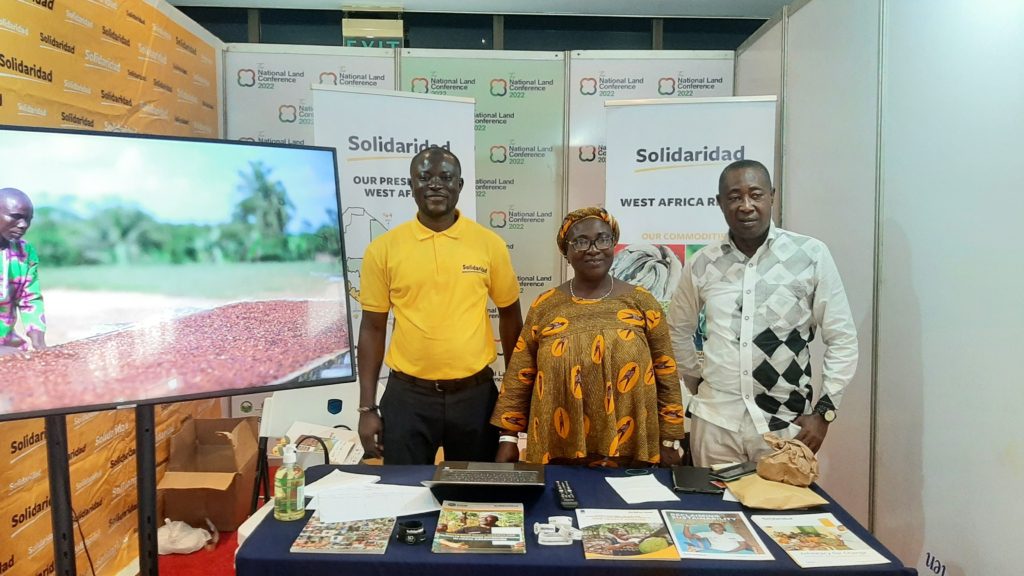
In 2022, TrustAfrica convened an inaugural inclusive multi stakeholder dialogue platform in both Kenya and Uganda that brought together tea sector stakeholders in the regions of East and Southern Africa. TrustAfrica supported the East Africa Tea Trade Association (EATTA) and smallholder farmer associations to convene inclusive dialogue in Kenya and Uganda. Through our regional mandate, we worked closely with EATTA and convened a regional multi stakeholder platform across four project countries: Kenya, Uganda, Malawi, and Mozambique.
TrustAfrica successfully trained civil society actors in advocacy and policy influencing in Côte d’Ivoire, Ghana, Sierra Leone, and Zambia, working on issues such as fair value distribution, gender inclusion, natural resource management, deforestation, as well as issues of land tenure security. We were able to build the capacity of farmers, civil society organizations, traditional authorities and key policy actors through sensitization sessions regarding land security and ownership in the land acts of Ghana and Sierra Leone. To ensure that the concerns and policy recommendations from farmers and civil society organizations were addressed, TrustAfrica convened a national dialogue bringing together the public sector, government sector actors, farmer organizations (palm oil and cocoa), and media to discuss the gaps, present recommendations and to secure commitments from policy actors.
In 2023, TrustAfrica plans to support civil society organizations with capacity building forums, multi stakeholder platforms, and training as part of our RECLAIM Sustainability! stakeholder strengthening activities.
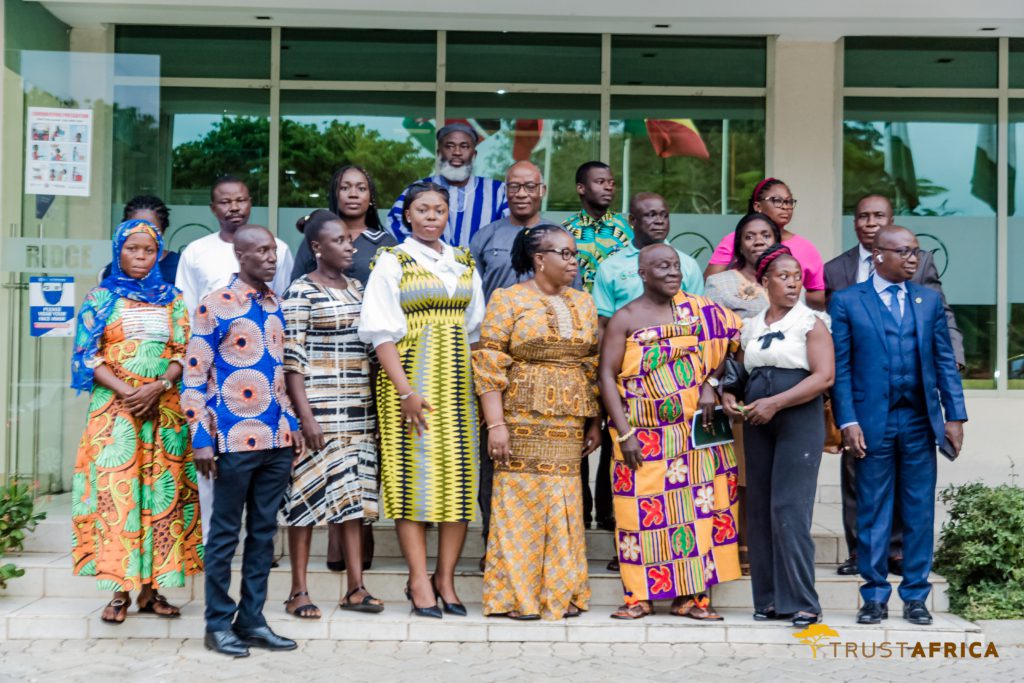
Influencing EU policy and engaging European citizens
The efforts of our consortium partners are reinforced by policy and advocacy work in Europe. Solidaridad Europe’s work in the European Union policy arena in 2022 focused on driving more ambitious and smallholder-inclusive due diligence legislation. Our work focused on two main proposals: the Corporate Sustainability Due Diligence Directive (CSDDD) and the Regulation on Deforestation-free Products. We advocated for a stronger CSDDD that includes, among others, obligations for companies to adjust their purchasing practices and increase efforts to ensure that smallholders in their value chains, especially women and marginalized groups, earn a living income. Likewise, we continue to urge the EU, governments and companies to take important steps to ensure that deforestation regulations will work for smallholders.
We also bolstered our advocacy work through communications and campaigning activities geared at gaining support from the European public for more sustainable and inclusive policies. The Good Clothes Fair Pay Campaign was undertaken in coalition with partners in the Netherlands and is aiming to collect 1 million signatures by July 2023. This campaign supports lobbying efforts towards EU living wage legislation in the garment industry and textile sector, where 70 percent of workers are women. Our campaign included an online petition to collect signatures and the opening of a so-called Signastore in a busy shopping street in the Netherlands on Black Friday.
In 2023, we will continue our advocacy efforts in the EU policy domain, as well as public campaigns to engage European citizens with sector sustainability, including the Good Clothes Fair Pay campaign in Germany. In addition, following the successful launches of the Palm Oil and Cocoa Barometers in 2022, two more major Barometers are set to be released in 2023, on Cotton and Coffee.
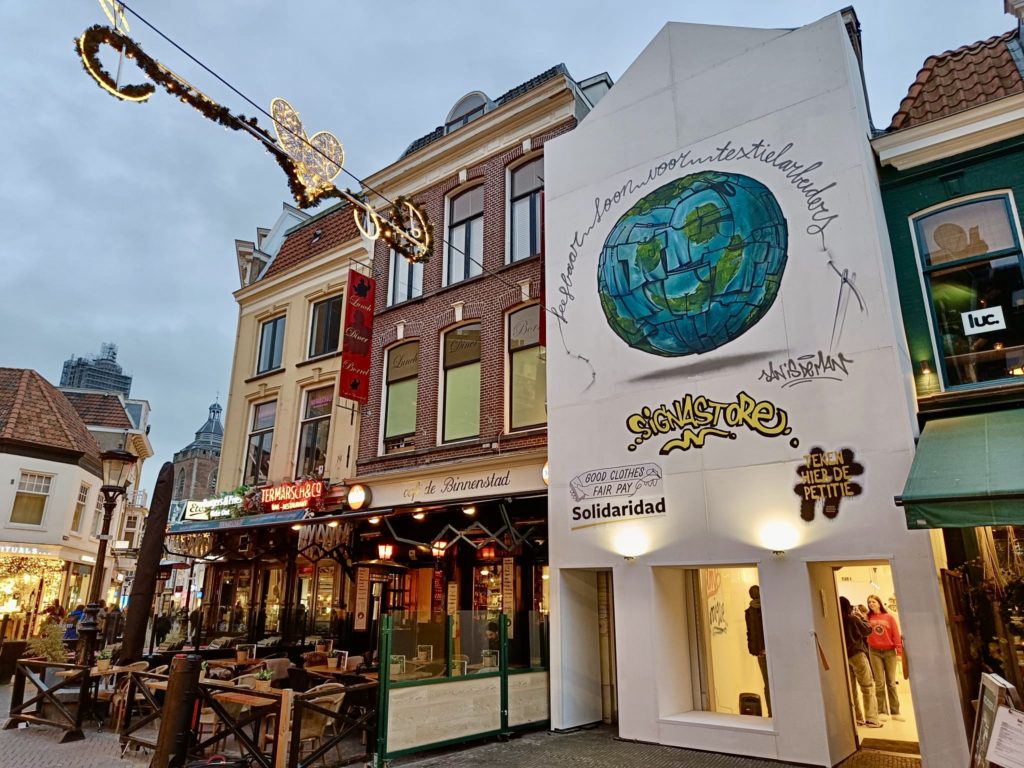
About RECLAIM Sustainability!
RECLAIM Sustainability! is a five-year programme implemented by Fairfood, Solidaridad, TrustAfrica and Business Watch Indonesia in strategic partnership with the Netherlands Ministry of Foreign Affairs. This global programme is active across 17 countries in cocoa, coffee, tea, palm oil, cotton & textiles, and gold; and with a special focus on local food systems in Africa.
In this programme, we strive for a radical re-balancing of power and genuine transformation that benefits the smallholder farmers, workers and miners at the beginning of the value chains. After all, there can be no genuine sustainability when the people who produce the goods consumed by us all continue living in poverty; when natural resources are not managed sustainably; when civic space in many countries is limited or even continues to shrink, and the working conditions of millions of producers are abject.



